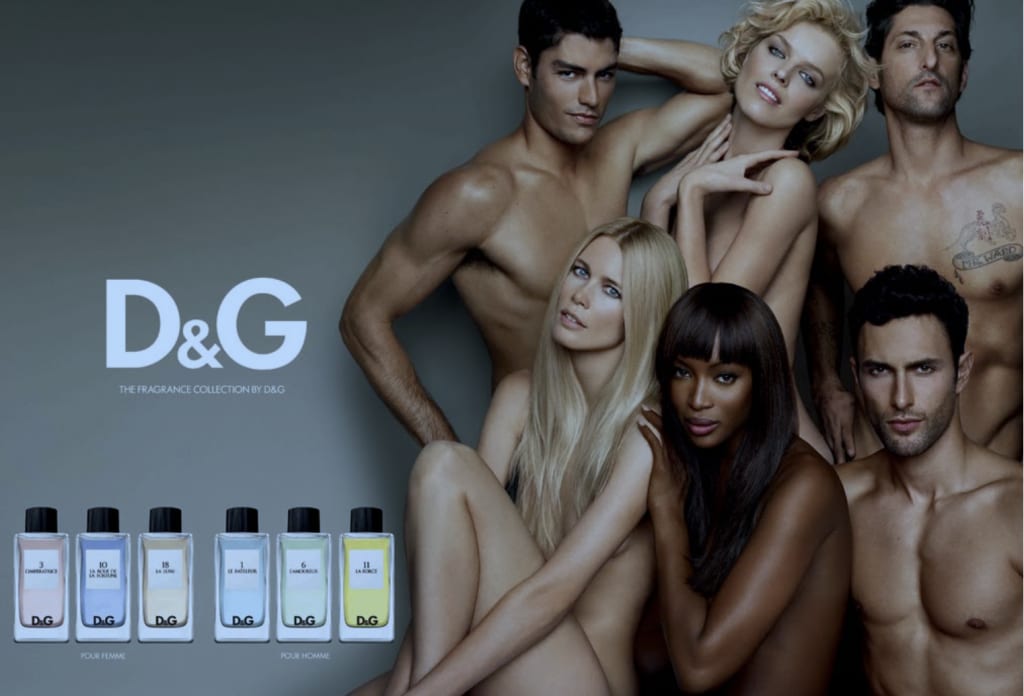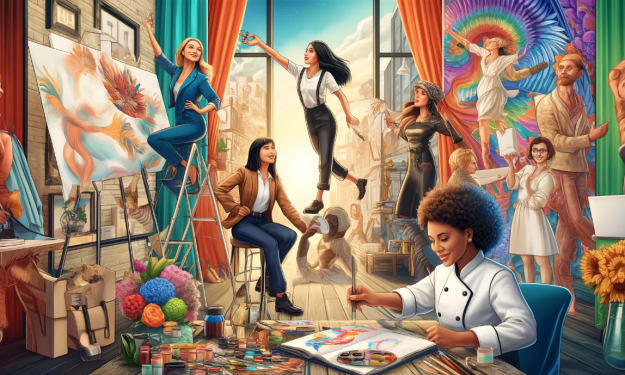BeYoutiful
Don't let the media define your beauty.

We hear people say beauty is skin deep, but the media is a constantly contradicting that statement. Many of us try to empower others by telling them what is on the inside is what matters the most. Although, it is not easy to empower someone who is being strongly affected by the powerful influences of the media; it ends up becoming difficult to let the important messages shine through all the toxicity. You can hold an umbrella over your head but the rain will continue falling; the media is just like that, even if we try to protect ourselves from its influences it’s still present. Each and everyday, the media goes through extreme lengths to put out content that represents the ideal beauty standard. The content is seen all around us, from music videos to billboards. Unfortunately, most of the content that is put out distorts the public’s perception of beauty.
To begin with, music videos are huge parts of today’s music industry; in today’s day and age they are now easily accessible through the Internet with websites such as YouTube. One of the music videos that particularly stood out to me is “Survivor” by Destiny’s Child. There are several reasons why this music video stood out to me. Firstly, I found it ironic that a song, which is about surviving and being independent, can turn into a sexualized music video. In the video they are dancing on the beach in a provocative way and are constantly changing into more revealing outfits. There are no men in the music video so the three singers are primarily objecting themselves; which goes to show female performers can still play the role of an object without the presence of a male.
In comparison to a lot of other music videos there is usually one alpha male with several other female performers dancing around him. For example, “Candy Shop” by 50 Cent ft. Olivia starts off with 50 Cent, the rapper walking into the mansion with women in revealing clothes welcoming him. As the video continues there are a lot of close-ups of the women that are practically half-naked and are heavily objectified. Watching music videos such as these two can easily put a female into an insecure spot in terms of body image. In both music videos, the women appear to be flawless and have perfect bodies.
A young teenage girl who may already be struggling with low self-esteem could end up comparing herself to the performers in the video and think that her body is not good enough. One study found that just ten minutes of exposure to music videos that show sexualized and thin performers could lead to severe body dissatisfaction (Bell). Not only do music videos have an impact on females but they also have an impact on males. For instance, if a teenage boy watches “Survivor” or any other music video where women are sexualized he can start to have unrealistic expectations of how a woman should physically look like.
From first hand experience, I remember being teased by one of my male classmates in elementary school because I did not shave my legs. He told me “girls aren’t supposed to have hairy legs.” Looking back now, I can understand how he got that type of notation. No one sees a speck of hair on a girl in music videos, or in any other form of media. Although, having a boy attacking a girl’s physical appearance can make her feel extremely self-conscious, which can lead to having a low self, esteem hence an increased risk of developing an easting disorder. Overall, music videos can have a negative impact on ones self-esteem and effect how they perceive body image.
Many advertisements heavily reply on physical attractiveness and sexuality to help sell a product. The message I am getting in this particular D&G advertisement shows that one must use their product in order to achieve a certain level of attractiveness. The models in this advertisement look unrealistically perfect due to digital alteration. Using tools such as photoshop allows the user to manipulate the face and body of models to make them look perfect. In reality, no one looks like those models that are shown. It is false advertising, which distorts the truth. The problem is many do not realize that these images go through hours of editing in order to achieve the final look; for instance the skin of the models in the image look overly glossed and smoothed out. Someone can easily think that his or her skin is not perfect just by looking at that.
Also, all of them have the ideal body shape that so many individuals yearn for. It is extremely rare to see models in advertisements that are not incredibly thin. Also, having pale skin nowadays is looked down upon. Many females want to achieve that perfect sun-kissed tanned look. Having all these unattainable beauty standards set by the media can put ones mental health at risk.
Social media platforms are becoming a huge hub for those going through an eating disorder such as anorexia. They use these platforms to create their own community so they can encourage each other to keep losing weight. Doing my own research on Instagram, I typed in the hashtag “anorexia” and the first thing that popped up was a content advisory saying “please be advised: These posts may contain graphic content. For more information and support with eating disorders please tap on learn more.” I found this very interesting. I clicked “learn more” and it opened a new link, which had information on eating disorders and different resources that you can go to if you’re seeking help. I was shocked to see the number of posts with the hashtag anorexia; there were 4,396,031 posts from mostly females all around the world.
Beauty Bloggers
Beauty bloggers are huge nowadays. They are active on YouTube, Instagram, Twitter etc. With beauty bloggers, they all have their own perception on what beauty is. I feel as though the influential beauty bloggers make a positive and negative impact on individuals, specifically the female audience.
Starting with the negative aspects, I have seen many girls comment on a beauty blogger’s Instagram posts saying things such as “I wish I looked like you.” “What do you do to get those perfect legs?” A lot of them are envious comments, wishing they looked like the beauty blogger. A lot of beauty bloggers also seem to objectify themselves and post highly sexual images to lure and please the male audience. I also have a couple of friends who have gotten upset when they see their significant other “liking” suggestive pictures of a girl and immediately get insecure over their bodies. On the other hand, there are some empowering beauty bloggers who embrace imperfections and flaws and solely focus on inner beauty.
In conclusion, the media has a huge impact on how we portray body image. Beauty is something that should be seen as skin deep. Unfortunately, most times the surface is what seems to matter the most. The immense amount of pressure the media has put on both females and males have been detrimental to their mental health, which have led to eating disorders. It is important that we take the opportunity to educate others around us about what going behind the images that we see around us. It is time to put the illusion behind us, and let the truth and reality come in front of us.
About the Creator
Loss of Identity
Music,fashion,photography,research,starbucks <3






Comments
There are no comments for this story
Be the first to respond and start the conversation.